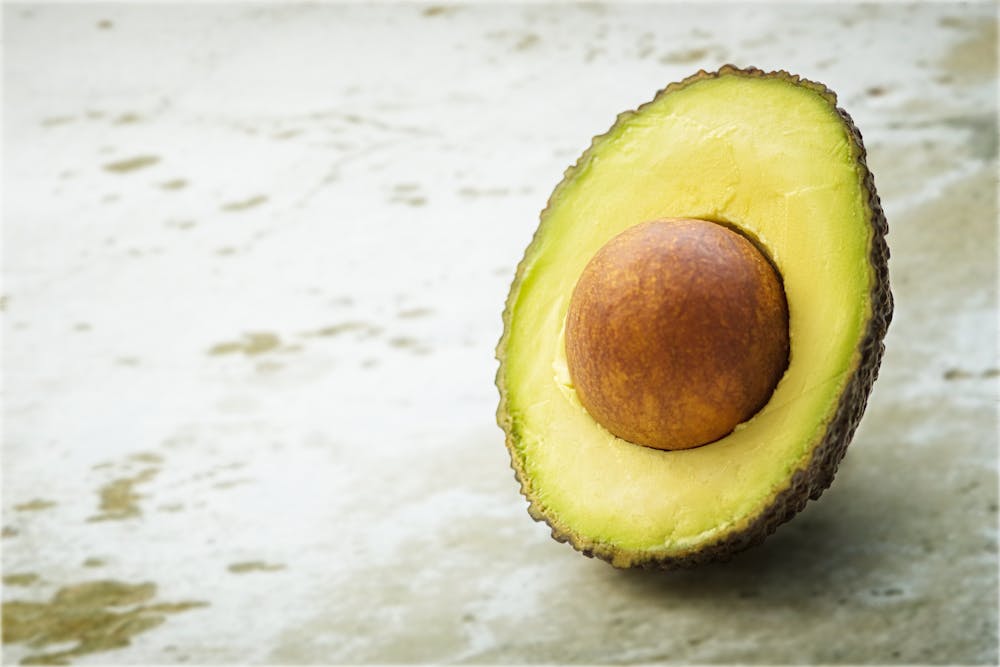We will see about 10 Healthy Foods You Should Eat To Live A Long, Healthier Life.
10 Healthy Foods You Should Eat Every Day
Eating healthy is a difficult task for many people. However, it is possible to still have a healthy diet without breaking the bank. This post will review ten foods you should eat daily as part of a balanced diet.

We all know that eating healthy can come with a hefty price tag that can be crippling to your wallet. But this doesn’t mean you have to skip out on your vegetables and fruit. We will review ten foods you should eat daily to maintain a healthy diet, balance weight, and prevent disease.
Living a long life also means that your diet becomes a lot more critical because it may be difficult to maintain a healthy one. Some challenges may include cooking, eating, or caring for yourself.
That’s because being so focused on work means you don’t have the energy to manage your health or are too busy to learn what foods will help you stay healthy.
10) Apples

A new study by Dr. Vincent Candrawinata found that eating Australian apples may lead to you living longer. This is good news for those who live in Australia and enjoy the taste of this type of apple, as studies have shown they may be healthier than people who grow up elsewhere.
This is because they have a lower risk of cancer, heart disease, and diabetes, so it’s essential to maintain good health. Eating and drinking an apple or apple juice daily has increased the chances of living longer.
Many traditional foods, such as meat and vegetables, lack fiber. Establishing a balanced diet, including fibrous foods, also has other benefits, such as inhibiting cancer and reducing hair loss while promoting dental health.
Research shows that eating healthy foods like kefir encourages weight loss and lowers your risk of heart problems.
Studies show that eating an apple a day could extend your life by an extra 17 years. It’s been suggested that eating this fruit may positively affect how long you live. British scientists in Norwich have discovered a unique substance.
9) Red wine

In the early 2000s, a significant amount of research concluded that people who ate Mediterranean-style lived longer.
A common way of achieving a detoxing diet is to replace sugar-laden drinks with alcohol. Wine, specifically red wine, is an excellent choice because it has been shown to provide antioxidants and other beneficial compounds.
One study found that middle-aged Italian men who drank up to five glasses of wine daily tended to live longer than other alcohol consumers, even if they maintained a healthy Mediterranean diet.
Another study found that those who ate a healthy Mediterranean diet but moderated their wine intake seemed to be living up to three years longer.
8) Whole grain

According to a new study, eating whole grains may be linked to longer lives and a decreased risk of death from heart disease in the future. While this trend was not found with cancer, people with heart conditions must continue eating whole grains.
New research has shown that individuals who eat whole grains regularly are less likely to die of cardiovascular disease and other physical causes, including deaths due to cancer.
“We found that the health benefits of eating whole grains were quite clear,” Dr. Qi Sun said in a recent Harvard School of Public Health nutritionist study, which found these foods to be high in various essential nutrients.
People replacing one serving of grain with whole grains daily decreased their risk of dying over the study period by 8%. They also had a reduced risk of death by 20% when they replaced one of their daily servings of red meat with whole grains.
7) Oatmeal

Researchers reviewed data from 74,000 women and 43,000 men who completed surveys about their diet every two to four years. Such data is collected to understand eating habits during various periods.
They noticed each one-ounce serving of whole grains led to a 9% reduction in the risk of cardiovascular disease-related deaths. Their findings suggest modifying food choices as a way to decrease the risk.
Swapping out one serving of red meat daily with whole grains was linked to a 20% lower risk of death from cardiovascular disease.
“When we analyze the nutritional quality of carbohydrates in detail, we find that refined carbs such as white rice, white pasta, and bagels are linked to a wide range of diseases,” wrote Qi Sun. “the study showed that eating whole grains can lower the risk of coronary heart disease.”
There’s no relationship between eating whole grains and having a lower chance of cancer-related death.
6) Chia seeds

Dieticians recommend eating at least 25 grams of fiber daily to ensure your diet is healthy. Thread is essential for regulating bowel movements and thus can help maintain regularity.
Wool is also necessary for controlling blood sugar levels and appetite suppression, making chia seeds a great choice because they are fiber-rich. They pack an impressive six grams per two tablespoons worth (or 22% DV), excellent if you’re trying to cut carbs and increase fiber intake.
One study published in the Archives of Internal Medicine found that those who consumed more dietary fiber also had a significantly-lowered risk of death. They can also help lower the risk of heart disease and type 2 diabetes.
Chia seeds are a fantastic, nutritious addition to many dishes. They’re easy to sprinkle into yogurt, weight-loss smoothies, or salad toppings.
5) Almonds

The differences in people’s genetic makeup can, to a certain extent, determine who will live a long and healthy life. However, leading health experts agree that what we consume has an even more significant impact on how healthy or unhealthy our life will be.
Many foods can help prevent serious health complications and reduce the risk of death. To live a healthy life, certain foods can help or hinder. It’s been shown that eating almonds can increase life expectancy and should be included as part of a healthy diet.
4) Walnuts

Walnuts contain healthy fats that can help reduce LDL cholesterol levels in your blood. Walnuts are also rich in protein, fiber, vitamin E, and minerals like potassium and magnesium. People who include walnuts in their diet daily tend to have lower levels of heart disease risk than those who do not eat them regularly.
Walnuts have been found to reduce the risk of cognitive decline, but it is unclear how. One theory is that antioxidants in walnuts are responsible for these effects.
Eating walnuts may decrease your risk of death and lead to greater longevity than those who don’t. Walnuts are found to be beneficial for any age group.
The research, published in Nutrients, found that eating five or more servings of walnuts per week may offer the maximum protection against mortality and increase life expectancy.
“Based on our findings, the study suggests that even a small handful of walnuts per week can help fend off heart disease risk.” The study found some healthy lifestyle changes customers may want to make.
3) Avocado

In another study, a group of people who ate a few servings of walnuts a week was seen to have similar health benefits compared to those who ate more than five servings. Omnivores did not have a strong positive association with dessert compared to vegans.
The researchers obtained data from over 67,000 women in The Nurses’ Study (1998-2018) and over 26,000 men in the Health Professionals Follow-up Study (1998-2018) to evaluate the positive effects of eating walnuts.
114 people participated in this study, and none of them had cancer, heart disease, or stroke at the start of the study
Avocados are more than just a trendy toast topping. They contain heart-healthy monounsaturated fats that could help lower cholesterol and fight heart disease.
These healthy fats help you eat less because they keep you feeling full for longer. Avocados might help fight cancer.
A study found that they contain molecules that target cells related to acute myeloid leukemia (aggressive cancer killing 90% of sufferers).
2) Blueberries

One cup of blueberries contains about 19% of your daily vitamin C value and many other antioxidants. There are several benefits that antioxidants have to offer. Antioxidants can help fight aging and disease, so many people turn to them to relieve their symptoms.
Blueberries are filled with bioactive compounds, which have been linked to increased lifespans. A study of the Nurses’ Health Study is one of the most extensive investigations on women’s risk factors for major chronic diseases. Found that 93,000 women were studied for decades.
A recent report has found that people who eat flavonoids, the chemical compounds found in foods like peppers, berries, and red wine, are at reduced risk of dying of all causes compared to people who do not consume these foods.
1) Leafy greens

The leafy green vegetables we eat, like kale and spinach, are high in nutrients and contain less than 100 calories per pound. These make them an ideal food for people trying to lose weight. In a recent study, women who ate a giant salad at the beginning of their meal consumed fewer calories from their other food, and more enormous salads led them to consume less.
You can reduce your risk of many health problems by increasing the amount of salad and raw vegetables you eat. They’re associated with a reduced risk of heart attack, stroke, diabetes, and cancer. Leafy greens also contain folate and other vitamins and nutrients like lutein & zeaxanthin, which improve eyesight, and prevent damage.
Leafy greens are an excellent addition to any diet. Kale, collard greens, mustard greens, and spinach or lobster can all be great choices. Try eating one or two servings every day to maximize the health benefits they provide! Eating salads with fatty dressings like nuts and seeds would be best to maximize fat-soluble phytochemicals like carotenoids. This is because your body absorbs them better when mixed with ketones.



